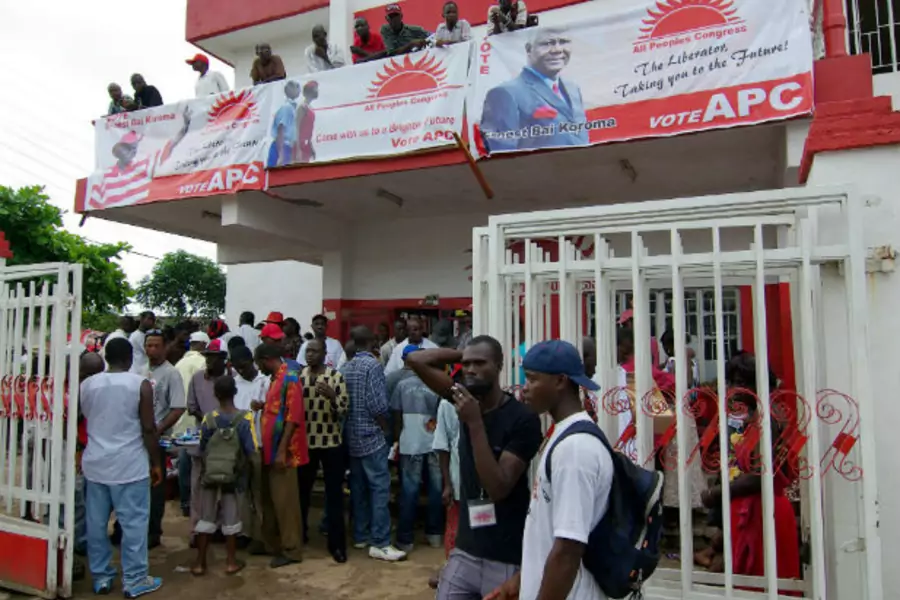More on:
This is a guest blog post by Mohamed Jallow, Program Development Specialist at IntraHealth International. He was previously a program associate at the Council on Foreign Relations.
Sierra Leoneans go to the polls a little over a week after the United States this year. Unlike the United States, Sierra Leone is still experimenting with the idea of democracy and all its complexities. There remains an ever present fear of elections degenerating into chaos and violence.
Election periods in Sierra Leone, as across much of sub-Saharan Africa, are a challenge to the people as well as the contestants. There is an increasingly polarized atmosphere to this year’s elections in particular–heightened by an overzealous mixture of pro and anti-government factions in the press–that increases fears of political violence. People are worried about whether Sierra Leone can weather this electoral cycle without degenerating into turmoil as some of its neighbors have done.
The answer to this question hinges on two things: First, whether the ruling party can exercise enough restraint when responding to political provocations from the opposition and their various mouthpieces. Second, whether a responsible press can remain true to the tenets of fair democratic debate rather than stoking deep seated divisions that could potentially destabilize the country. So far, only the former has been true.
Despite its limitations, the government of current president, Earnest Bai Koroma has shown a remarkable level of restraint, especially in dealing with the incidences of violence among its supporters and the opposition. The press on the other hand, has been engaging in political flame throwing, and even overt incitement in some cases. Sierra Leone, as with many countries in the region, has seen a proliferation of newspapers in recent decades. While this is a good measure of an open political system, with the press free and vibrant, it becomes counterproductive when it fails its duty to keep the population informed, instead engaging in political demagoguery. The situation has unsettling parallels to the post-election crisis in Côte D’Ivoire in 2010. There, many newspapers openly chose sides and increased the divisive rhetoric that contributed to the violence following those bitterly contested elections.
One encouraging sign in Sierra Leone though, is that civil society groups are taking steps to mitigate potential political violence during and after the elections. The Political Party Registration Commission, together with local and international partners, has been sensitizing the public and political parties to the perils of political violence, and how to avoid it. Many Sierra Leoneans have also recognized that elections by themselves are not a panacea for addressing the myriad problems facing the country, but that extreme vigilance in the face of superficial tensions can save the country from going the way of Côte D’Ivoire and Guinea.
More on:
 Online Store
Online Store
